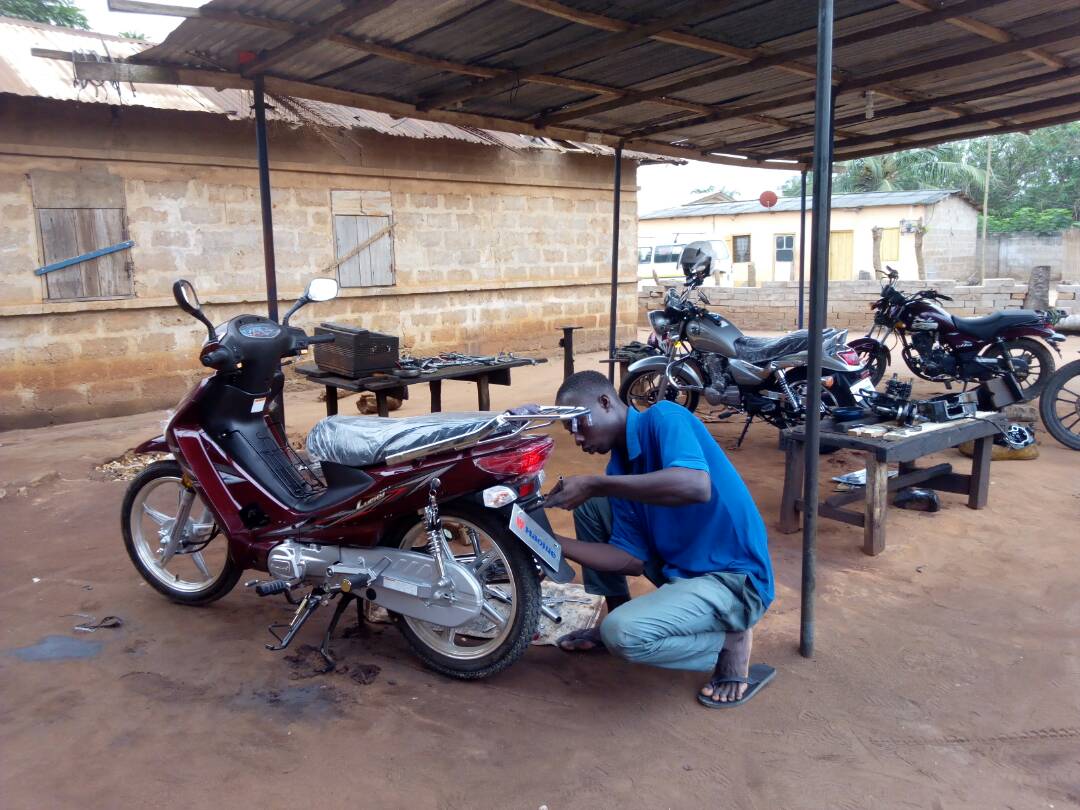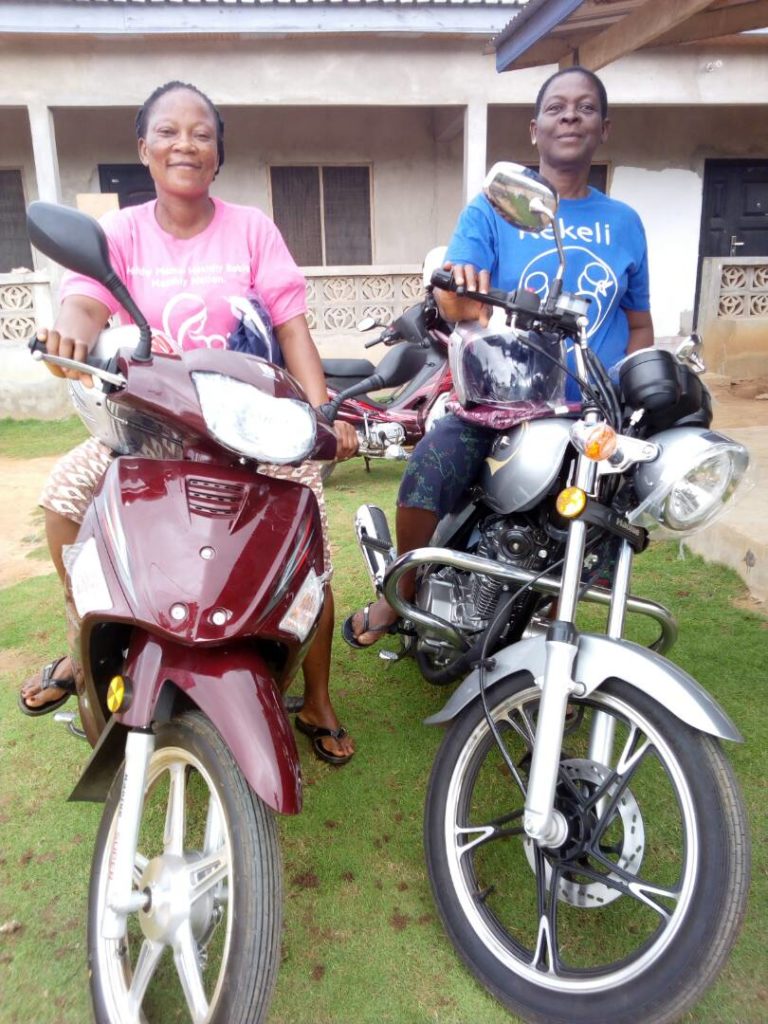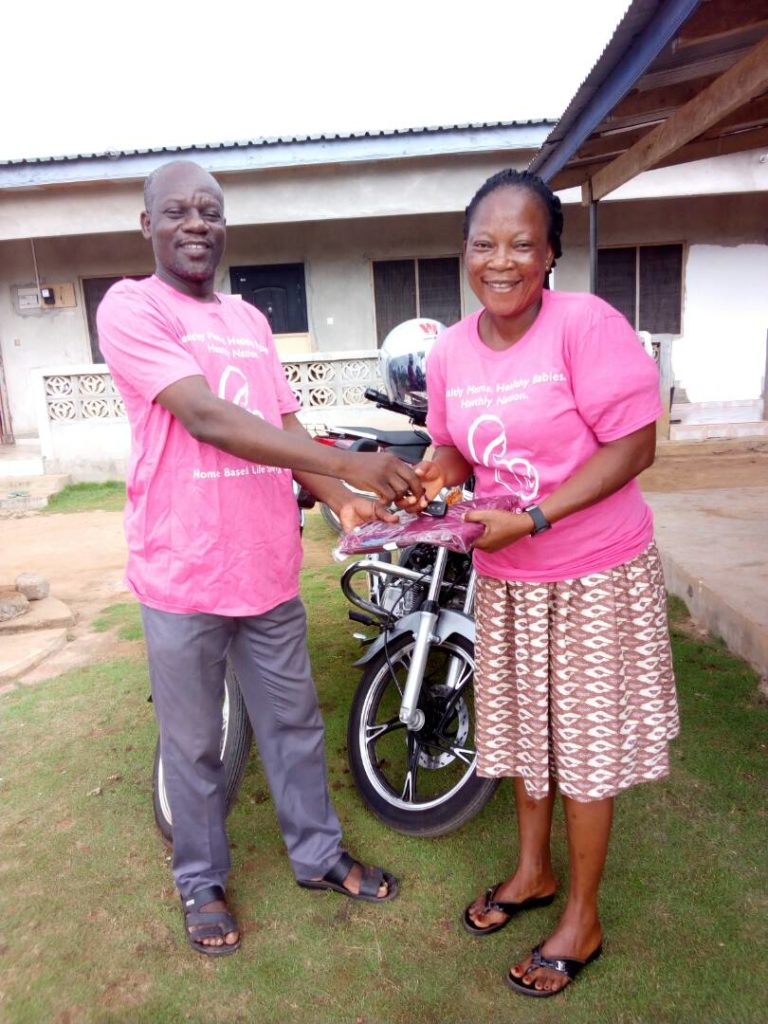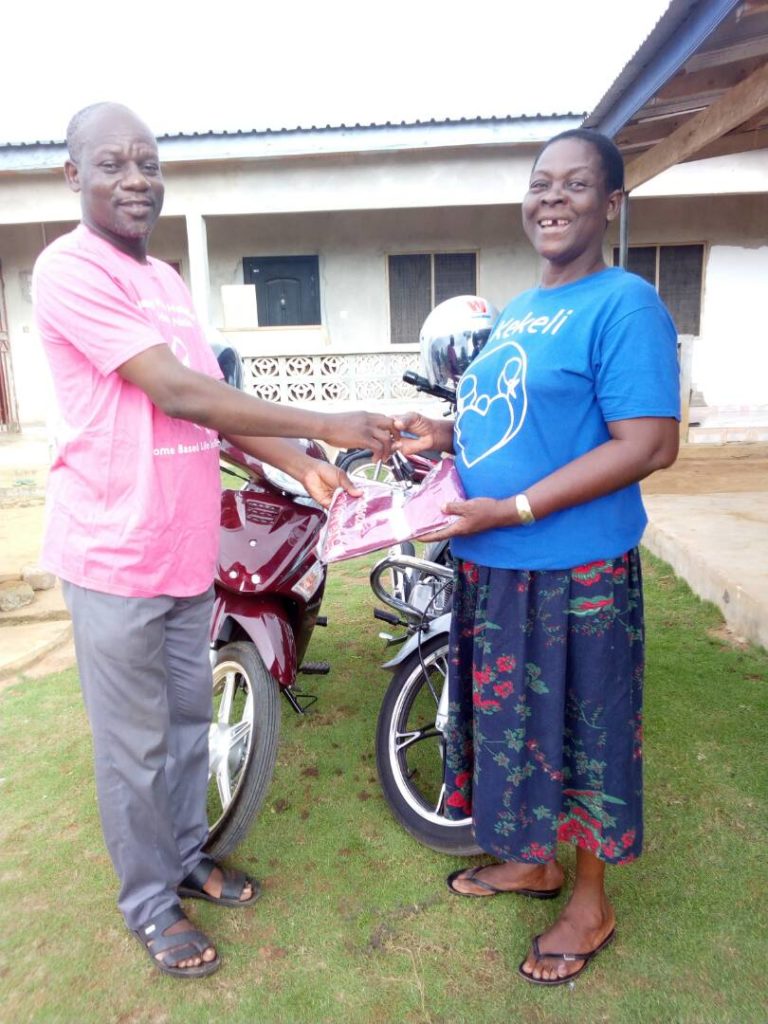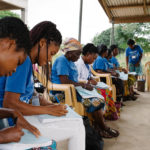In 2017 the percentage of Kekeli teachings that were monitored dropped from over 60% to 30%. The goal the monitors have set for themselves is to attend over 50% of the Kekeli teachings, so this drop is something all of us want to see improved. Monitoring helps provide the Kekeli Women with in-person support, increases visibility in their communities, and allows us to better assess the quality of their work.
We’ve identified many reasons for this drop, including personal illness, family deaths, and a drop off in commitment. But the entire team, both in the USA and in Ghana, are committed to improving the number back to the 50% mark in 2018.
One of the barriers the Ghana team identified is that two of the monitors, Alnice and Comfort, don’t have their own transportation. When they need to visit Kekeli communities they have been hiring motorbike taxis and sitting on the back to and from these rural sites. This is a common mode of transport in Ghana.
However, riding with a motorbike taxi for this type of work is far from ideal. They aren’t able to stay for as long in the communities because the driver has to bring them home again. Longer waits are more expensive. They also don’t have as much freedom to come and go as they please.
So this month we decided as a team to buy RHC motorbikes for Alnice and Comfort. Each motorbike is about $1000 USD, including registration, which is quite reasonable given the relatively high cost of other items in Ghana.We bought a motorbike for Georgina, another RHC Ghana team member, several years ago. It has been a huge help for her.
Both motorbikes (or scooters) have already been purchased and the women are already using them! Alnice will also use her new scooter to help the Kekeli Women with their smartphones. She’ll make visits to their communities to address needs in person.
We’re excited about the improved support the RHC Ghana team will now be able to provide the Kekeli Women as they go about their important community-based work.


